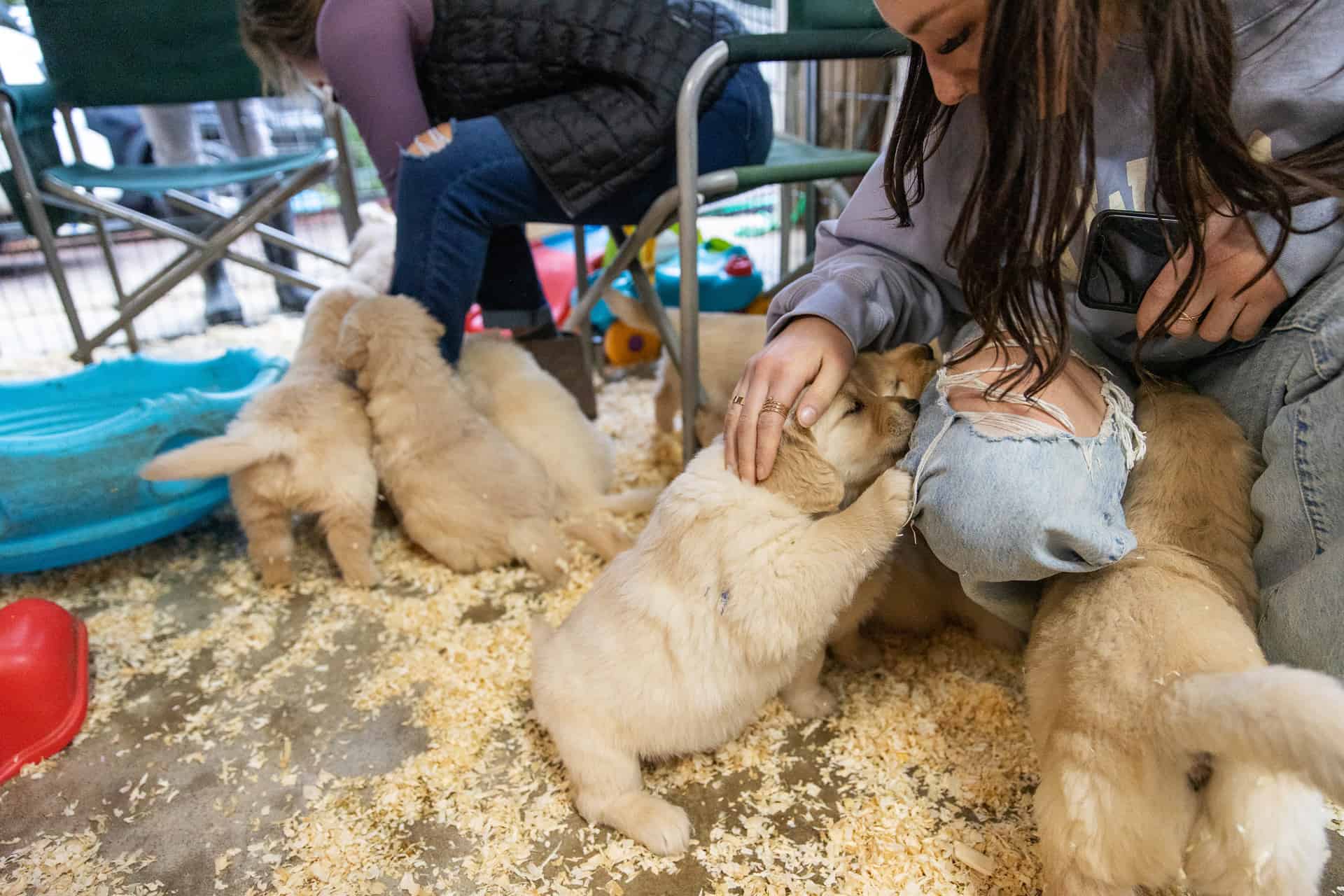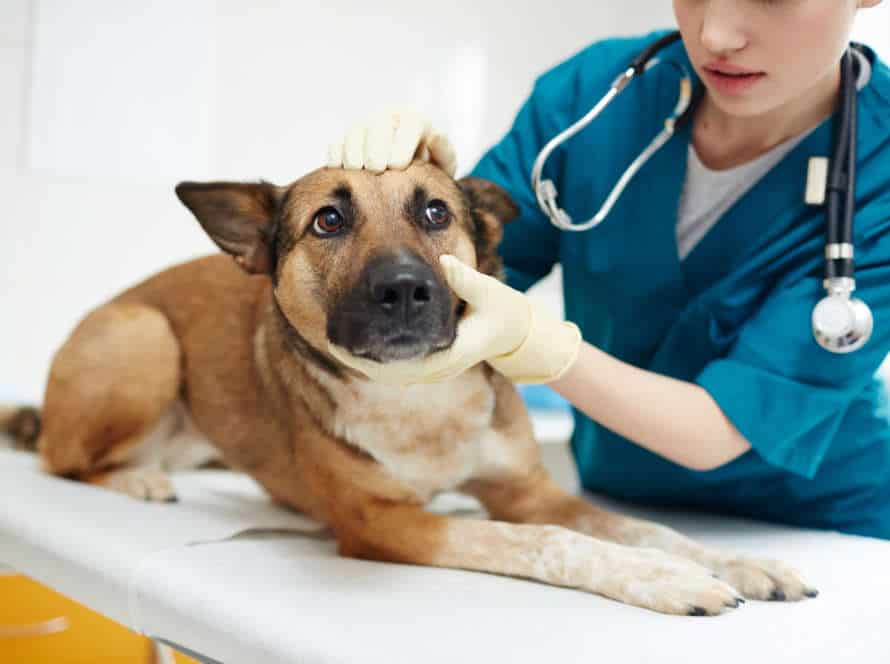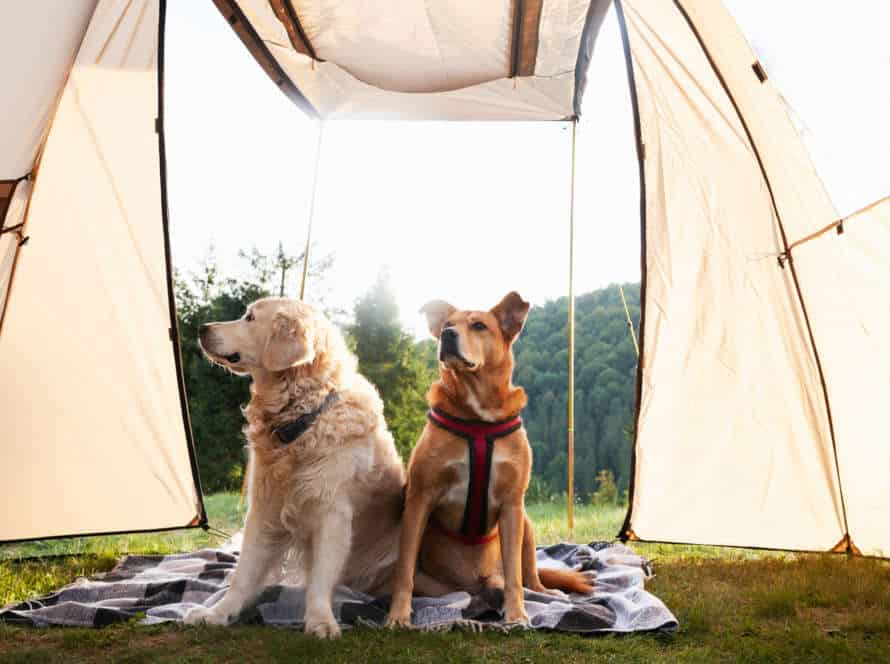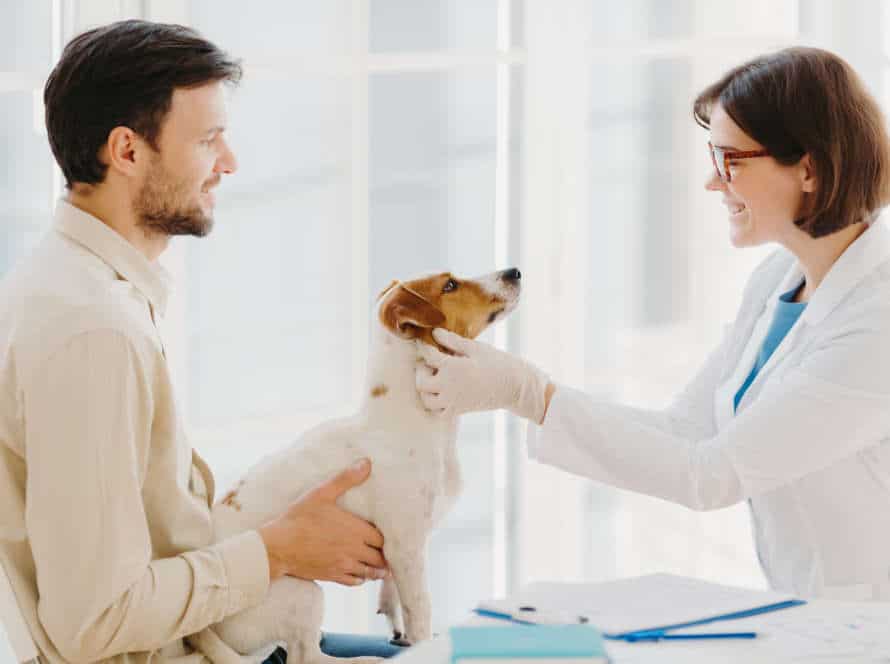Choosing a Dog Breed and Finding a Breeder
Selecting a pup breed is a huge decision! Do not take it lightly. When purchasing from a breeder, it’s essential to research the breed and the breeder. Learn about the health and behaviour traits of the breed. Also, assess how the breeder cares for the pups. Make sure the breeder is trustworthy and reliable.
Let’s look at the steps when buying a dog from a breeder:
- Research – Research the breed and breeder. Learn about the health and behaviour traits of the breed.
- Assess – Assess how the breeder cares for the pups. Make sure the breeder is trustworthy and reliable.
Understanding the breed characteristics
Buying a pup from a breeder can be overwhelming and exhilarating. Before purchasing, grasp the breed characteristics of your desired pup.
Here are factors to think about:
- Size: How much space do you have in your home and backyard for your furry friend?
- Energy Level: Pick a breed that matches your lifestyle and energy.
- Coat Type: Different breeds need different levels of grooming. Some need daily brushing, some hardly any.
- Temperament: Research traits like friendliness, trainability, and protectiveness. Pick a pup that fits your character and lifestyle.
Also, research breeders and ask the right questions. Pro tip: Adopt from a local shelter or rescue organization to give a pup a loving home!
Researching and choosing a reputable breeder
Researching and selecting a reliable breeder is key when buying a pup. It guarantees a healthy pup from a dependable source, preventing potential misery in the future. Here are some essential points to consider when researching and choosing a reputable breeder:
- Research the breed: Learn all you can about the breed you are interested in. Make sure it’s right for your lifestyle.
- Visit the kennel: Schedule an appointment to go to the breeder’s facility. Check the living conditions of the dogs and make sure they are in a safe and clean atmosphere.
- Meet the parents: It’s essential to meet the puppy’s parent to get an idea of their behavior.
- Check the breeder’s credentials: Ask about their experience, certifications, and any references or testimonials.
- Health testing: A dependable breeder should do the needed health testing on their breeding dogs to ensure the puppies are healthy.
Pro Tip- Always pay attention to your gut and leave if you feel uncomfortable with any aspect of the breeder, their dogs, or the facility.
Finding breeders through national or local breed clubs
If you want a purebred pup, finding a good dog breeder through breed clubs is the way to go. These clubs look after specific dog breeds and list breeders who follow their standards for breeding.
When you buy from a breeder recommended by a club, here’s what you get:
- Information about the breed – temperament, health issues, care instructions.
- The breeder will have knowledge and experience with the breed.
- You get documentation of the pup’s health, vaccinations, and pedigrees.
- The breeder gives support – advice on puppy care, training, and behavior.
- Get a healthy and happy pup when you buy from a reputable breeder recommended by a breed club.
Communication with a Breeder
Communication is essential when getting a pet from a breeder. Before you get the pet, call the breeder to find out about its health and availability. Ask questions about the pet’s background, family, and any health problems. It’s important to be sure the breeder is looking out for you and giving you a healthy pet.
Let’s look at what happens when communicating with a breeder.
Contacting the breeder via phone, email or on-site visit
When buying a pet from a professional or hobby breeder, communication is key. Phone calls, emails, and even an on-site visit can help you decide if the breeder is right for you.
Phone Calls: Use your first call to ask general questions about the breed and the breeder’s experience.
Emails: After the initial call, use email to ask detailed questions and share info about your lifestyle.
On-Site Visit: Seeing how the breeder treats their animals, if the facilities are clean, and meeting the pet in person can help.
Having good communication with a breeder helps you understand the process and decide if they are reputable.
Asking important questions about the puppies and parents
Questions are essential when talking to a breeder about puppies and their parents. It’s vital to make sure that the puppy you’re buying is healthy, with a good temperament, and from a responsible breeder who follows ethical standards. Ask these questions:
- Are the parents’ and puppies’ health records available?
- Are the puppies and parents in a clean and healthy environment?
- Have the puppies been socialized?
- What is the temperament of the parents and puppies?
- Are the parents registered with a kennel club?
- What kind of support is offered after buying the puppy?
- How are returns or complaints handled?
Chatting with the breeder helps you make a wise decision when buying a puppy. This guarantees a happy life for your furry friend.
Meeting the puppies and their parents
When buying a puppy from a breeder, meeting the puppies and their parents is key. It can tell you about the puppies’ health and character.
The breeder will introduce you to the mother and sometimes the father. Seeing them helps you know how the puppies will turn out.
You will also get to mingle with the litter of puppies. This helps you pick a pup that fits your lifestyle.
Ask the breeder about any health issues in the parents, the litter or if they have any health problems in their breeding lines.
Be ready to answer questions about your living situation, lifestyle, and dog experience. This is a chance to make sure you are getting a healthy and happy puppy.
Health Evaluations and Certifications
Buying from a breeder? Check out their puppies’ health!
Evaluations and certifications should be looked at. Sources can vary. It’s important to consider when deciding. Here are some popular ones:
- Health evaluations and certifications.
- Make sure to get them!
Understanding health issues associated with the chosen breed
When purchasing a pet from a breeder, assessing its wellbeing is critical. Research a breed’s health problems and ask for evaluations and certifications. Here are some common ones:
- Hip and elbow evaluations. These check if a dog is prone to hip or elbow dysplasia, which causes abnormal joint development.
- Eye exam. A vet must confirm a dog’s ocular health to avoid blindness and other eye-related health issues.
- DNA testing. Certain breeds have genetic health worries, and DNA tests can detect if a dog is at risk of diseases.
- Vaccinations and de-worming. Good breeders vaccinate their dogs and deworm them to stop the spread of infections.
By recognizing these health evaluations and certifications, pet owners can make informed decisions when buying their pets. They can be sure their furry friends will live healthy, happy lives.
Pro Tip: Always research the breed-specific health concerns and certifications to request from a breeder.
Reputable breeders’ health testing requirements
Reputable dog breeders usually need to health-test their dogs before breeding. This makes sure the puppies are healthy and not carrying genetic illnesses. The testing may differ for each breed, but there are some typical tests for all dogs.
- Hip and Elbow Dysplasia screening is done to spot any abnormalities in the hip or elbow bones. These can lead to lameness or arthritis.
- Eye testing looks for genetic issues which can cause blindness or vision problems.
- DNA testing checks if the dog has any genetic disorders or abnormalities.
- Progressive Retinal Atrophy tests for early signs of blindness.
Knowing these standards of a reputable breeder can help you make an educated decision when buying your dog. Responsible breeders always prioritize their dogs’ health and welfare over profit.
Review of health certifications provided by breeders
When purchasing a pet from a breeder, it’s important to guarantee that they offer the correct health assessments and certifications. Here are some examples:
- Health Clearances: A good breeder should have their breeding animals checked for any genetic problems common to the breed. Tests may include hip & elbow dysplasia, eye exams, and heart evaluations.
- Vaccines & Deworming: A responsible breeder should offer proof that the puppy has been given the appropriate vaccinations and dewormed.
- Microchip: Every reliable breeder should include microchipping your new pet as a safety measure.
These certifications can’t promise your pet will be totally healthy, but it does show the breeder cares about their animals’ health.
Pro Tip: Do your research on the breeder before purchasing. Credible breeders usually have positive reviews and recommendations from past clients online.
Purchase Agreements and Requirements
Buying a pup from a breeder? It’s important to know the purchase agreement and all the requirements. This agreement usually states the terms of sale, like the pup’s health guarantees and any breeding rights. You need to be aware of what is expected of you too. Let’s look at the agreements and requirements a breeder might have.
Understanding expectations from the breeder
When buying from a breeder, it’s key to understand the expectations and requirements stated in the purchase agreement. That way, you ensure a smooth transaction and avoid any confusion. What should you expect?
A purchase agreement should include: price, payment plan, health guarantee and return policy.
The breeder should provide evidence of the pet’s health screenings and vaccinations. Plus, they may ask you to take your pet for regular check-ups.
It’s essential to do your research and make sure you’re buying from a reputable breeder. Look for recommendations and reviews from previous customers. That way, you invest in a healthy animal from a trustworthy source.
Pro Tip: Ask questions and clear up any doubts before signing the purchase agreement. Better to be upfront and prevent any misunderstandings later.
Breeders commitment to take back the puppy
When you purchase a pup from a reliable breeder, you may find a clause in the purchase agreement regarding the breeder’s promise to take the pup back. This is to make sure the pup stays safe and does not end up in a shelter or with an unsuitable owner. A responsible breeder always cares more for their pups’ health and safety than money.
The purchase agreement should also include other obligations for the buyer, like providing proper care, regular vet visits, and an appropriate living space for the pup.
When buying from a breeder, anticipate going through a screening process. This may involve filling out a questionnaire and having a home visit. All this is to guarantee the pup goes to a secure and loving home.
Spaying or neutering requirement and contracts limitations
Planning to buy a pet from a breeder? Get ready for spaying/neutering requirements and contract restrictions.
Breeders often have clauses in their purchase agreements. These clauses require buyers to spay/neuter their pets within an agreed timeframe. This helps prevent unwanted breeding and keeps the animal safe.
Certain breeders also limit breeding rights and resale options. This stops their animals being used for unethical practices or ending up with the wrong people.
It’s important to read and understand the purchase agreement before buying. Ask any questions or voice any worries you have.
By following these requirements and limits, you can keep your pet safe and support responsible breeding and ownership of animals.
Picking Up Your New Puppy
Excitement awaits! You’ve chosen to get a puppy from a breeder – but first, you must do your research. Learn all about the breed, then ask about the pup’s health. Make sure it’s healthy and well-socialized.
What can you expect when it’s time to pick up your new pup? All the answers are here. Let’s take a look!
Preparing your home for new arrival
To get ready for a new pup, some planning and patience is needed. Here’s what to remember when bringing your furry friend home from a breeder:
- Get necessary items like a crate, food/water bowls, leash/collar, toys, and grooming tools.
- Designate an area in your house for them to sleep and play. Use puppy pads, blankets, and chew toys.
- Puppy-proof your home. Remove potential hazards such as cords, chemicals, and small objects your pup might swallow/chew.
- Introduce your pup to family and other pets slowly. Let them get used to each other’s scents and sounds first.
- Be patient and consistent with training. Use positive reinforcement and socialize them often. Pro tip: Consistency is key. Set up boundaries, use positive reinforcement, and make a routine for both you and your pup.
Understanding vaccination and deworming history
When you get your pup from a breeder, it’s important to know their vaccine and deworming past.
Vaccine: Pups should have a series of vaccines to shield them from common canine illnesses. Most puppies start this around 6-8 weeks of age and get a new set every 3-4 weeks until they’re 16 weeks old. Ask the breeder for a record of the given vaccines, including dates, to guarantee your pup is up-to-date.
Deworming: Puppies are usually born with worms, so it’s important to give them deworming. This can begin as early as 2 weeks of age and is done every 2-3 weeks until they’re 16 weeks old. Ask the breeder for a record of the deworming treatments, including dates, to make sure your pup has been properly dewormed.
Correct vaccine and deworming are vital for keeping your puppy healthy and content. Pro tip: Make sure to take your puppy to the vet for a check-up within a few days of bringing them home.
Discussing grooming, training and nutrition with the breeder.
Picking up a new pup? Have a convo with the breeder. It’s essential to ensure your pup is happy and healthy. The breeder will help with advice. Here’s what to discuss:
- Grooming: Ask about the breed’s needs. Baths, brushing…any habits or preferences?
- Training: What techniques have been successful? Potty training, obedience, etc?
- Nutrition: Brand of food, how much to feed, how often? Any allergies or dietary restrictions?
Talk to the breeder, and you’ll be all set to care for your furry family member!
Frequently Asked Questions
Q: What should I expect when buying from a breeder?
A: When buying from a breeder, you should expect a high-quality, healthy pet with a potential for specific traits or characteristics desirable for that breed. You should also expect clear communication from the breeder, including information about the pet’s health, vaccination history, and any guarantees or warranties associated with the purchase.
Q: How do I choose a reputable breeder?
A: Look for breeders who participate in breed-specific clubs or organizations, and who can provide references from previous buyers. Good breeders will also have a strong focus on health testing and socialization of their animals, and will be transparent about their breeding practices and any potential genetic health risks for the breed.
Q: What should be included in a contract with a breeder?
A: A contract with a breeder should include information about the pet’s health and vaccination history, spay/neuter requirements, and any guarantees or warranties associated with the purchase. It should also outline the responsibilities of both the buyer and the breeder, including any return policies or emergency contact information.
Q: Is it okay to visit a breeder before purchasing a pet?
A: Absolutely! Visiting the breeder before making a purchase is an important part of the process. It allows you to see the environment the pet was raised in, as well as observe the breeder’s behavior and interact with the pet before committing to a purchase.
Q: Can I expect to pay more for a pet from a reputable breeder?
A: Yes, it is typical to pay more for a pet from a reputable breeder due to the higher costs associated with health testing, socialization, and quality breeding practices. However, the upfront cost is often worth it in the long run, as you are more likely to get a healthy, well-adjusted pet with fewer potential health issues down the line.
Q: What is the difference between a breeder and a pet store?
A: A breeder is a person or organization that specializes in breeding specific types of pets and typically only sells directly to buyers. A pet store, on the other hand, may sell a variety of different pets from different breeders and may not have as much information on the pet’s background or health history.







